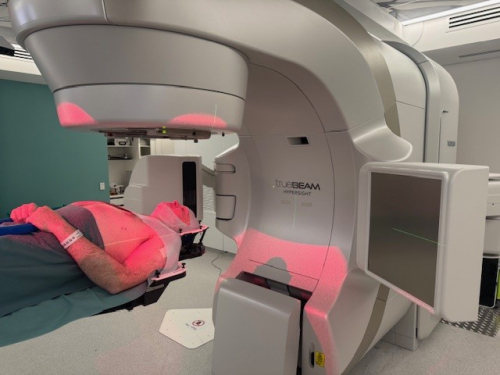Australian-first brings life-saving technology to the bedside

A mobile CT scanner is being utilised at the bedsides of critically ill ICU patients for the first time in Australia, allowing specialists at The Alfred to quickly identify potentially life-threatening injuries in rapid time.
Alfred Health head of trauma neuro ICU Dr Andrew Hooper said the machine not only saves valuable time but is a much safer option for critically ill patients.
“Patients needing intensive care are usually attached to sophisticated monitoring equipment, may be on a ventilator and also have various infusions going on at the same time,” he said.
“Traditionally, we’d have to change over to portable equipment, and then transport the patient to a CT scanner, which takes three people about an hour to complete.
“This technology allows us to wheel the mobile CT scanner into the patient’s room, and we do the scan there and then... there’s not even a need to change beds.
“If a patient is unstable the best place for them is to remain in ICU with all the equipment and our specialist team close to them, so this has huge benefit for our patients.”
The machine can perform brain CT scans – a common occurrence at The Alfred’s ICU, which is one of the largest ICUs in Australia.
“Primarily, we’ll be using this on trauma patients with brain injuries, as well as patients who have had neurosurgery or a stroke, and intubated patients who are not waking appropriately.
While the machine is portable, in still weighs a staggering 771kgs, which means staff have also been trained in how to safely move it around.
Radiographer Nicola Thwaites and her team are quickly adapting to the new equipment.
“Traditionally, with a fixed scanner, the bed moves in and out of the CT scanner while it acquires the images.” she said.
“With this machine the bed is stationary and the machine moves backwards over the patient.
“We’d really like to acknowledge our incredible donors – who through their contributions to The Alfred Foundation – made purchasing this machine possible.
“It’s been a learning process, but it has been a great collaborative process to get this project ready and we’re all incredibly excited to have this technology here at The Alfred.”


